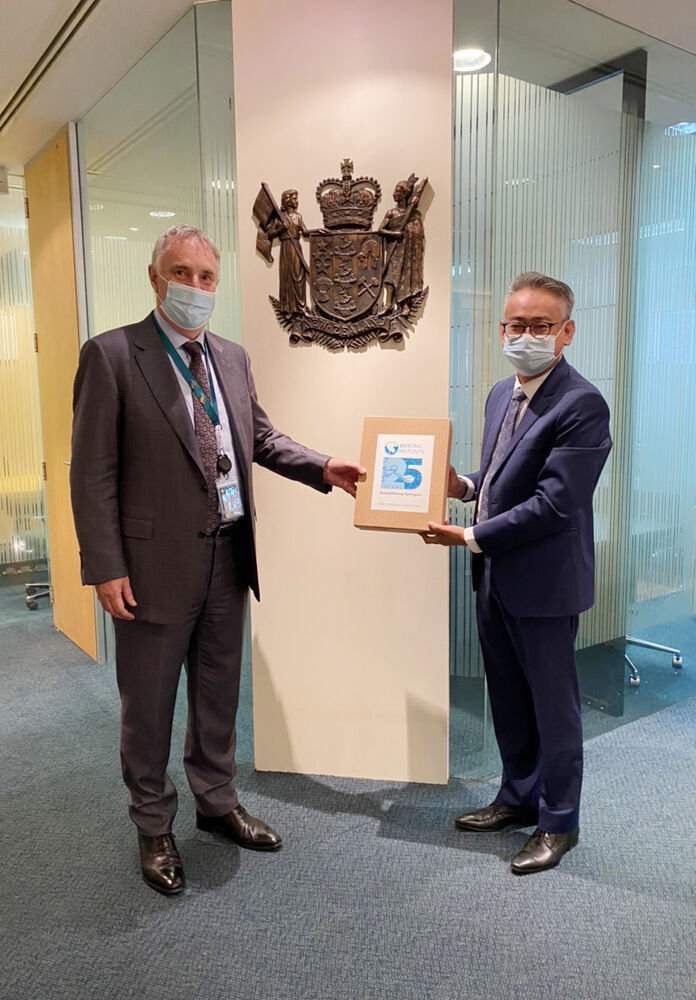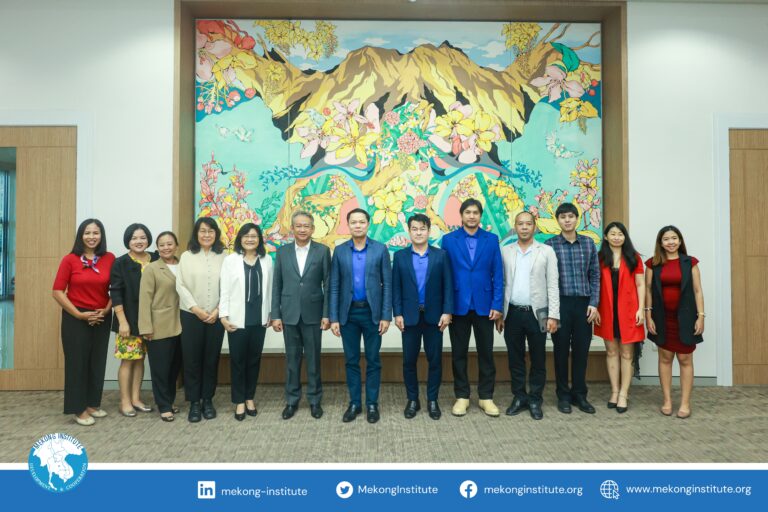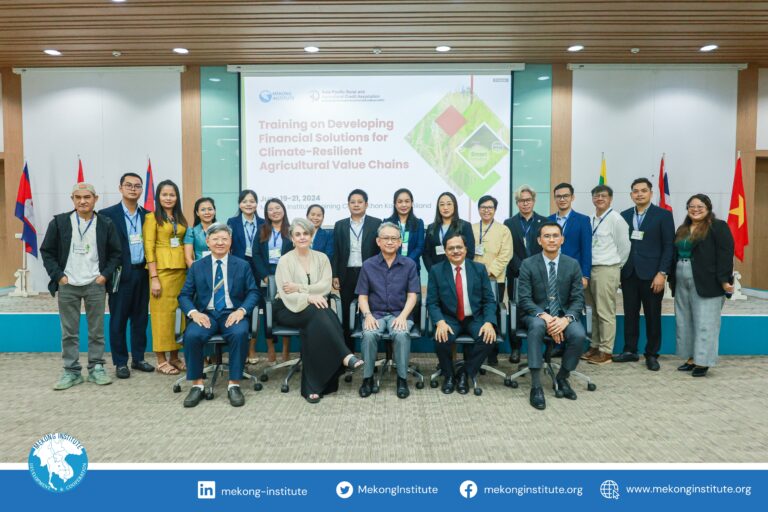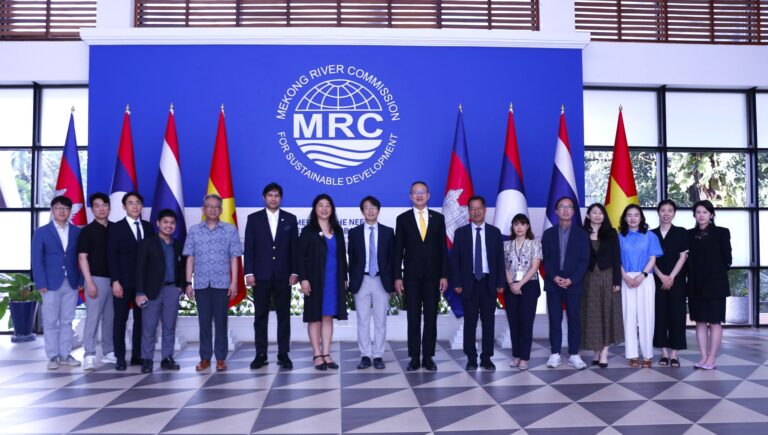Nurturing the long-standing relationship of Mekong Institute (MI) with the New Zealand Aid Programme (NZAP), Mr. Suriyan Vichitlekarn, the Institute’s Executive Director, and Ms. Maria Theresa Medialdia, Director of Agricultural Development and Commercialization Department, paid a courtesy call on H.E. Mr. Jonathan Kings, the newly appointed New Zealand Ambassador to Thailand on May 18, 2022.
The MI team was accorded a warm welcome by Ms. Melissa Haydon-Clarke, Deputy Head of Mission; Mr. Matthew Allen, First Secretary (Development); and Ms. Natthanun Patcharapunchai, Development Program Coordinator who joined the meeting.
In the discussion, Mr. Vichitlekarn briefed the Ambassador on MI’s future directions through its strategic plan. Both sides exchanged ideas on further strengthening its role in the region through collaborative initiatives, building from the current food safety program, PROSAFE, which is being implemented by MI with support from NZAP since 2016, towards other possible agenda for cooperation. Other areas of sustainable food systems that contribute to food safety, particularly on green food value chain development, are being added as a part of the program.
With the positive results harnessed from the implementation of PROSAFE, H.E. Mr. Kings lauded the Institute on continuously capacitating key stakeholders in the region, especially in Cambodia, Lao PDR, Myanmar, and Viet Nam, and in playing an important role in promoting regional cooperation and integration.
Other points of discussions between the two parties include emerging issues, such as climate change and the importance of climate-smart agriculture policies and multi-stakeholder engagement in the development and investment along the economic corridors of the region. Improving the competitiveness of the agrifood value chain through resilient and efficient agriculture, complemented by increasing partnerships among the public, private sectors and civil society will bring about a holistic approach in safeguarding food security.







